Are you going on a weekend in Bordeaux? Enjoy it to discover the city of the 18th century in the time of a feverish Europe, in the midst of a transformation!
Europe of the eighteenth century is sometimes committed to emancipatory ideas, sometimes in obscurantism. On the one hand we are witnessing the advent of the Encyclopaedia under the feather of Diderot and Alembert (1751-1772), the first inventory against the death penalty drafted by the Italian jurist Cesare Baccaria in 1764, or a bewildering feminism but how much precursor in the person of Mary Wollstonecraft who will later inspire the suffragettes in England. Since 1730 France will know the industrial revolution and then an agricultural revolution that will better support the needs of the population. Hygiene is paralleled by dramatic progress in the hearts and has been able to eradicate plague epidemics since 1720.
On the other hand, Europe is the mother of powerful colonial empires that dispute the least parcel of land they could take advantage of. When Christopher Columbus had set foot on Hispanola (Dominican Republic) and then on the territory that would become the United States of America in 1492, the thorny question of whether the natives had many souls emerged. The fate of Africa was sealed: the Pope said that these so-called "Indians" had a soul, contrary to the inhabitants of the black continent. So the triangular trade began to feed America with a cheap workforce to work in the fields of cotton and sugar cane.
Bordeaux, an important port
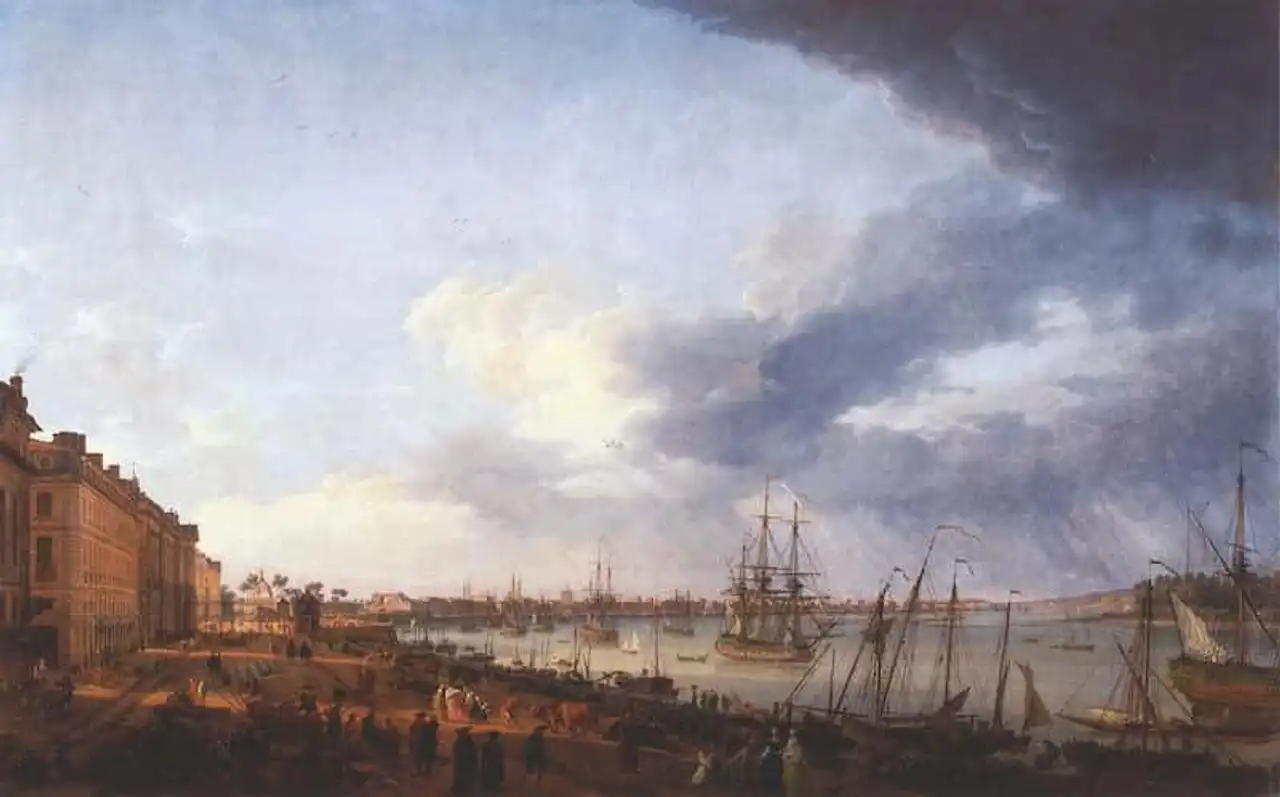
Photo credit: Table by Claude Joseph Vernet (1758) - First view of the port of Bordeaux: take on the side of the Salinières
Two centuries later, under the reign of Louis XV, the port of Bordeaux therefore trades wine but also now sugar, cotton, tobacco, coffee, gold from the colonies as well as slaves.
Bordeaux, the first port of the kingdom of France (even if it is not the first negrier port, Nantes counted 42% of the total of the negratory expeditions) must bet on its most beautiful surroundings in these circumstances. In order to hide the roofs covered with thousands of terracotta tiles, said "Roman tiles" because imported by this invader people, the king made the docks to be built in a splendid way: Place de la Bourse, slate-shaped roofs. Thus, merchants or ambassadors who made a stopover in Bordeaux could only marvel at such prestige.
Bordeaux, monuments of the eighteenth
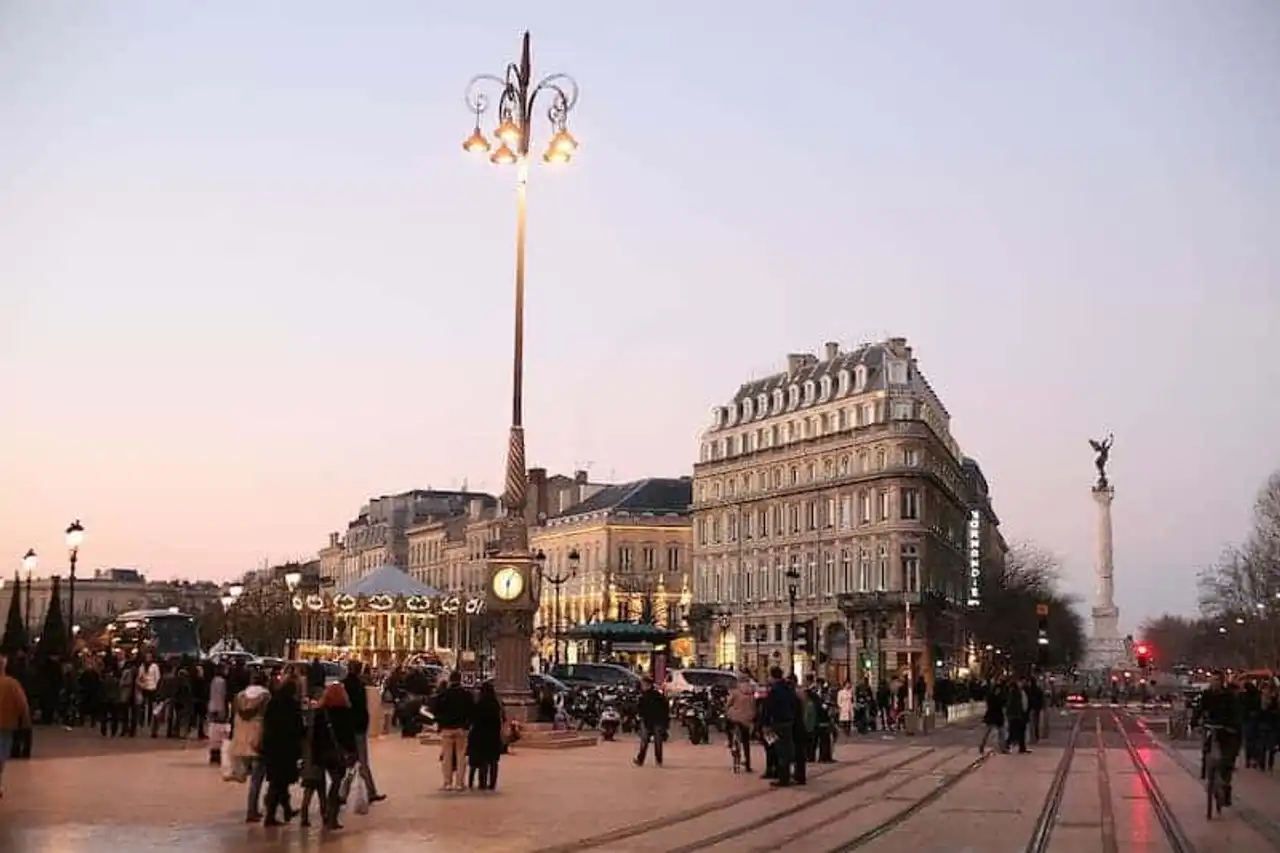
Photo credit: WikiMedia – Ludovic Courtès
Bordeaux XVIIIème, classified UNESCO is to be seen absolutely. As for Chartrons traded the wine, further on the docks form the Place de la Bourse , formerly called Place Royale, then Place de la Liberté under the Revolution and finally Imperial Place under Napoleon I. The Grand-Théâtre on the Place de la Comédie, classified as a Historic Monument, is a former Gallo-Roman forum where formerly the Piliers de Tutelle were located.
Take a walk to the city and explore the old medieval city that has become modern thanks to the stewards Boucher and Tourny and the classic style of this new architecture. ♪ Allée Tourny must in fact be their name to the famous architect: it is an esplanade in the heart of the city centre, where an old ride with its wooden horses turns.
Go to meet the Dijeaux Gate erected by Voisin, holding its name of the gascon « De Jòu » of a temple dedicated to Jupiter at the time the Gallo-Roman era and Porte de Bourgogne , also called Porte des Salinières and once also named the Arc de Napoléon.
Bordeaux has made the choice of a tram with an electric power supply by its rails, so as not to distort the urban landscape and risk losing its UNESCO label. This allows the production of period films in an authentic setting.
The Age of the Lights: the sparkle in the night
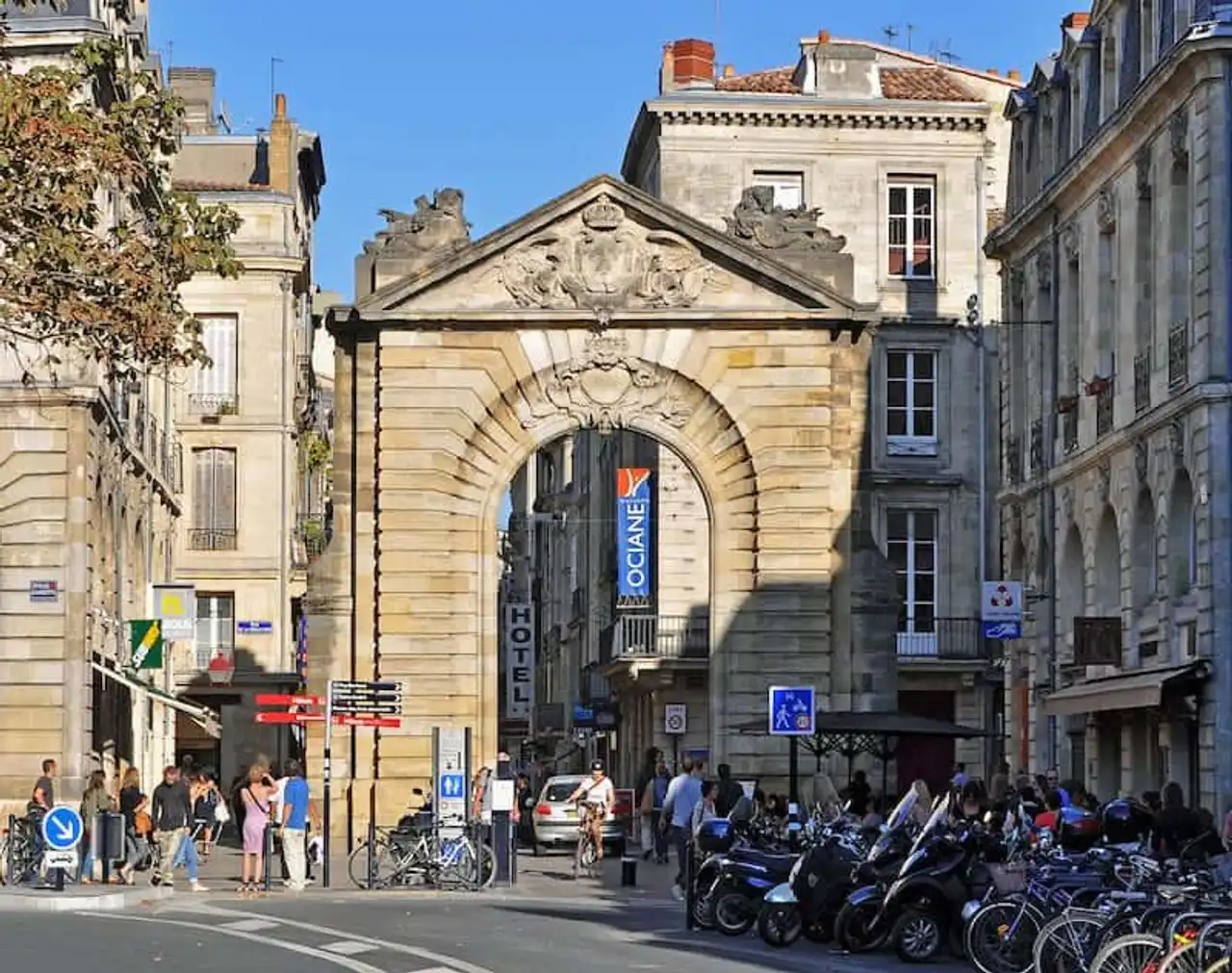
Photo credit: WikiMedia – Marc Ryckaert – Port-Dijeaux Street
The eighteenth century saw the advent of rationalist philosophers and writers opposing the absolute monarchy. Montesquieu, a child of the country born in Guyenne near Bordeaux, is a moralist, a French political thinker favoring the separation of powers in 1721.
He resided in Bordeaux for several years, including in Rue des Lauriers: the restaurant "The Grenadines" perfectly reflects the atmosphere of this 18th century, in which this famous writer evolved. He also lived on Rue du Mirail when he published the Persian letters . At 87 Rue Port-Dijeaux, you will find the Librairie Mollat, which occupies the old house of the French writer since 1928.
Other philosophers joined him to criticize, in addition to a separation of powers, the abuse of the Church, torture and slavery, such as Voltaire and Jean-Jacques Rousseau. Everyone wanted to see an enlightened political system emerge, with inalienable rights. It will have to wait until 1789, that social unrest wins all of France, to see to take shape a new state. The French revolution allowed the abolition of privileges, the end of the Old Regime and the drafting of the Declaration of Human Rights.
However, absolute monarchy is not yet a Republic: it will be transformed into a constitutional monarchy, thus beginning its slow transfer to an uncertain ideal.
Did Rousseau not say: “Man was born free and everywhere he is in the irons” ?
Main photo : Wikimedia – Olivier Aumage
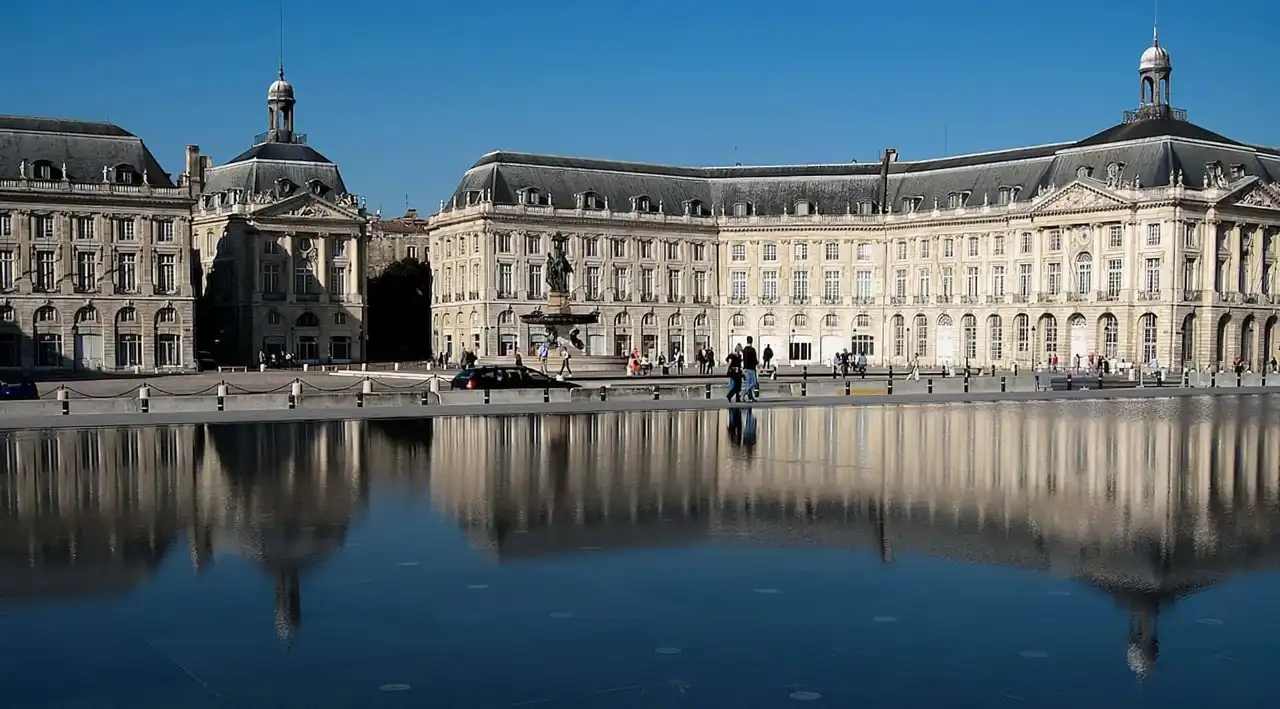




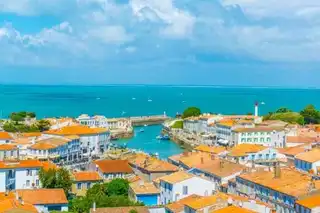
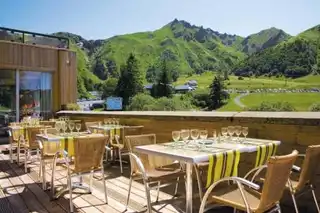
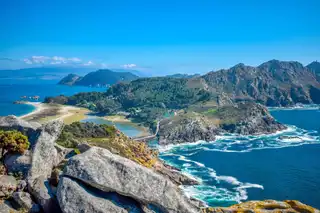
Loading comments ...